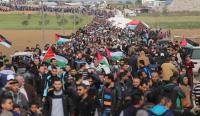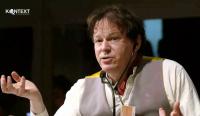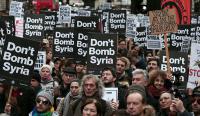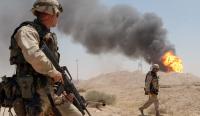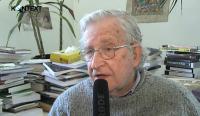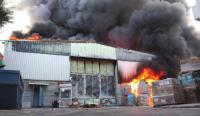The situation in Gaza and the Westbank has been worsened in the last twenty years. The suppression of Palestinians by the occupying force Israel has become harsher and more violent, says Sara Roy, senior scholar at the Center for Middle Eastern Studies at Harvard University. The separation policy destroys not only the economy but also “any sense of a national collective, or political collective”. It is the outcome of the Peace Process. “Oslo, from the beginning was a very damaging process." Many Israelis essentially want peace but are not willing to acknowledge the injustice and look away. As a daughter of parent who survived the extermination camps in Auschwitz she can’t stay silent on the Israeli occupation policy. Her parents taught her “that if you do not speak out against injustice, you become complicit in it”. Also Germans should speak out and say: “This should end”. “It's not speaking against Israel. Ultimately, it's speaking for Israel.” Kontext TV produced the interview years ago. The situation has in many respects worsened since then.
Sara Roy, Senior Research Scholar at the Center for Middle Eastern Studies, Harvard University
The situation in Gaza and the Westbank has been worsened in the last twenty years. The suppression of Palestinians by the occupying force Israel has become harsher and more violent, says Sara Roy, senior scholar at the Center for Middle Eastern Studies at Harvard University. The Israeli authorities have done a lot of damage as Palestinians are denied a dignified life resulting from the theft of land and water, the destruction of homes and economic blockades. The Gaza strip continues to be occupied, an isolated prison, disconnected to the Westbank. This separation policy destroys not only the economy but also “any sense of a national collective, or political collective”. It is the outcome of the Peace Process. “Oslo, from the beginning was a very damaging process.”, says Roy.
Since the inception of the Oslo Agreement in 1993 the Westbank has been more and more fragmented and its parts isolated from each other by Israeli settlements, roads and walls. Today there are more than 200 enclaves in the Westbank, in which Palestinians have to live. The crossings, controlled by 600 checkpoints, are restricting any movements. To the Jordan valley Palestinians only have limited access. This makes it impossible for the inhabitants to live a normal life while they continue to be dependent on international aid. The Israeli government refuses “to share the land with the Palestinians”, says Roy. Many Israelis essentially want peace but are not willing to acknowledge the injustice and look away. This is fatal as real understanding of the Palestinians situation is key to any solution of the conflict.
Hamas who is ready to talk should be included in negotiations about a two-state-settlement, says Roy. Without Hamas there will be no solution to the conflict. As a daughter of parents who survived the extermination camps in Auschwitz she can’t stay silent on the Israeli occupation policy. “I don't understand how any person and particularly any Jewish person can justify this.” Her parents taught her “that if you do not speak out against injustice, you become complicit in it”. In the last years the liberal Jewish community in the U.S. has grown dramatically while more and more Jews criticize the occupation. Also Germans should speak out and say: “This should end”. “It's not speaking against Israel. Ultimately, it's speaking for Israel.”



